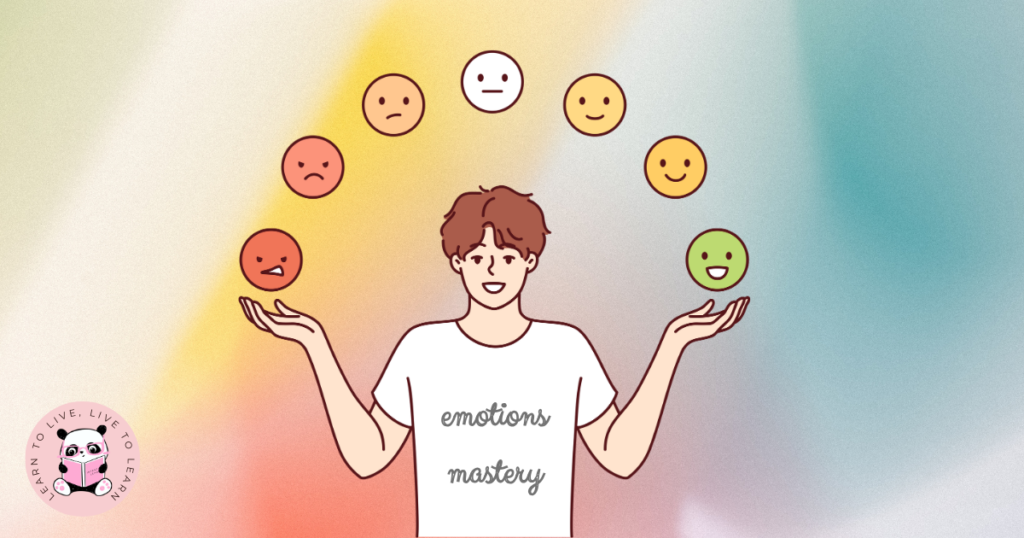Why We Tend To Be Overly Critical Of Ourselves
Written by Michelle Ong | July 14, 2024 | Growth, Wellness

Delve into 6 reasons for why we often struggle with treating ourselves kindly.
Do you second-guess your every move, doubt your abilities, or replay your mistakes on an endless loop? Well, you’re not alone. Many of us are our own harshest critics, often treating ourselves with a level of scrutiny and negativity we wouldn’t dream of directing at others.
But why are we so bad at treating ourselves kindly? What makes us so prone to self-criticism and doubt? Why do we subconsciously engage in self-sabotage? In this blog post, we’ll explore the reasons behind our tendency to be overly critical of ourselves.
1. Comparison
“Comparison is the thief of joy.”
Theodore Roosevelt
Comparison tops the list of reasons for our self-criticism. Living in a competitive world, we often compare ourselves to those who seem better off or have set high benchmarks, leading to feelings of inadequacy.
Digital media amplifies this by showcasing idealized lifestyles and success, creating a perception that others lead perfect lives. The glorification of successful individuals further pressures us to excel, fostering a belief that success is only attainable for a select few.
Comparing ourselves to influencers and celebrities celebrated for their achievements can trigger harsh self-judgment, perpetuating unrealistic expectations and undermining our sense of worth and accomplishment.
This cycle often leads us to view failure and success as polar opposites, rather than recognizing them as part of our personal growth journey.
2. Cultural & Social Conditioning
“Cultural and social conditioning may shape our self-criticism, but we hold the power to rewrite our own narrative.”
Cultural norms also play a significant role, especially those that emphasize humility, self-discipline, and constant self-improvement. We often have emotional blind spots because we were taught from a young age that certain emotions are inappropriate, leading us to avoid and suppress them. Showing vulnerability in many cultures is discouraged, and the focus is on always being tough and composed.
For instance, when I was growing up, I have been told not to cry or show sadness because it was seen as a sign of weakness. This conditioning can come from our families, friends, or society, which often set high expectations and are overly critical. This mindset leads to a lack of self-awareness, where we dismiss mindfulness and self-reflection as practices for the weak.
Asking yourself why you feel a certain way or acknowledging your emotions can seem unnecessary when you’ve been taught that the mature approach is to act as if everything is fine.
This is actually a self-defense mechanism to protect ourselves from the fear of failure and the potential critique from others. By pretending that nothing is wrong, we try to pre-empt and prepare for any criticism, but this approach prevents us from truly understanding and addressing our emotions.
3. Perfectionism
“It’s not who you are that holds you back, it’s who you think you’re not.”
Hanoch McCarty
Perfectionism is a significant reason for being self-critical. It biases our focus and emphasis on flaws and mistakes, coupled with harsh disapproval. A tendency to focus more on our mistakes and failures rather than our successes and strengths can increase self-criticism.
When you constantly hold yourself to high standards, there is a heightened fear of failing, making us hyper-aware of our shortcomings and overly critical in an attempt to avoid mistakes.
This also causes us to develop imposter syndrome, where the feeling of being a fraud or not deserving of success leads to continuous self-doubt and criticism. By striving for an unattainable level of perfection, we set ourselves up for disappointment and relentless self-judgment.
This pursuit often leads to a constant feeling of not being enough, not having enough, and not achieving enough, fueling an ongoing cycle of self-criticism and dissatisfaction.
4. Unresolved Emotional Issues
“Doubt kills more dreams than failure ever will.”
Suzy Kassem
Past failures or criticisms from others can shape our self-perception and lead to self-doubt and harsh self-judgment.
Negative self-talk that’s internalized from a young age often becomes a habit, shaping self-critical beliefs. This can lead us to assume the worst and overgeneralize, making things seem worse than they actually are.
For instance, if you had a tough experience in school where a teacher embarrassed you in front of the class, that feeling of shame can stick with you, influencing how you perceive similar situations in the future.
Negative past experiences, especially during formative years, can cultivate a feeling of ‘not enough,’ leading to self-criticism and self-blame. Emotional issues such as unresolved trauma or low self-esteem can manifest as harsh self-criticism.
5. Take Criticisms Personally
“Don’t let the noise of others’ opinions drown out your own inner voice.”
Steve Jobs
Taking criticisms personally can make us overly self-critical. This habit of negative self-talk is further reinforced by the feedback and criticism we receive from people around us.
If, as a child, you were frequently criticized for your mistakes while your strengths and achievements were minimized, it can erode your self-confidence. Taking to heart the negative feedback and criticisms from others can lead us to develop a critical internal voice.
Personal insecurities stemming from these experiences can lead to imposter syndrome—a pervasive feeling that we don’t deserve our achievements and the constant fear of being exposed as a fraud.
Even when we succeed, we often second-guess ourselves, convinced that we’re not as competent as others believe. This fear of criticism from others can lead us to preemptively criticize ourselves, thinking it will somehow protect us from external judgment.
Check out my post on how to stop caring about what others think of you for more insights.
6. Desire For Control
“Let go of the need to control the outcome. Trust the process and embrace the journey.”
Lastly, the desire for control can lead us to be self-critical. Criticizing ourselves can sometimes be a way to exert control over our lives, believing that being harsh will push us to improve. For example, if you make a mistake at work, you might berate yourself to prevent future errors, thinking this will ensure better performance.
By focusing on our perceived flaws and shortcomings, we think we can avoid failure and maintain control over outcomes. This constant self-scrutiny, however, often results in negative self-perception and reduced self-esteem, hindering our ability to grow and thrive.
Overcome Your Inner Critic
So, are any of these reasons familiar to you? Are you guilty of them too? By understanding the roots of our self-criticism, we can start to dismantle these harmful patterns. Interested in learning how you can overcome your inner critic? Check out this post on how to love yourself better to start taking action!
Like what you are reading? Pin & share this post with your family and friends! And follow me on Pinterest for more daily inspiration!


